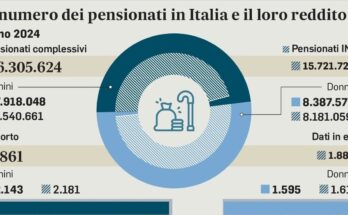‘The right to food: can we make it happen?’. That was the original title ‘Food as a Right: Can We Make It Happen?’ – speech by Frederic Leroy, professor of food microbiology and biotechnology at the Vrije Unversiteit Brussels Faculty of Science and Biotechnology, at a conference on food safety organized by Renew Europe – under the auspices of Belgian MEP Benoît Cassart, breeder and vice-president of the Sustainable Livestock Intergroup – in the European Parliament. In response to increasing health challenges and often conflicting dietary advice, a group of scientists led by Leroy have launched new scientific research summarized in the Nutrition Table, an innovative scheme designed to help people make informed food choices. It is a flexible tool, which goes beyond current standard dietary guidelines and introduces the concept of ‘adequate nutrition’ as the key to long-term health and wellbeing. An evolution that goes beyond the widespread idea of a ‘healthy diet’ that is generally considered as such if it is based on foods of plant origin and low in fat.
Although at the global level many international organizations and some governments are pushing for a major food transition towards plant-based diets in the belief that this is a priori the ‘healthier’ option – a note informs – the Nutrition Table promotes a less restrictive approach. He proposes ‘adequate’ nutrition, through a diet that includes a wide variety of foods of animal and plant origin, with complementary nutritional profiles. The Nutrition Table emphasizes individual preferences and proposes a diet plan based on scientific evidence, broad and able to adapt to sensitive regional and cultural foods. This way, each person can choose what to eat based on their nutritional needs, food traditions, and personal preferences.
In detail, the Nutrition Table is a flexible framework based on scientific evidence, designed to offer a more personalized approach to nutrition, focusing on 2 key factors: nutrient density – i.e. the balance between essential nutrients such as protein and micronutrients compared to energy content – and the level of food processing. From the combination of these parameters, a visual and practical scheme is born, showing which food combinations improve health and which harm health. Research points to an omnivorous diet, rich in minimally or moderately processed foods with high nutrient density, as a gateway to adequate nutrition. This approach can meet various food needs, from traditional food patterns to the needs of specific groups such as children, pregnant women and the elderly.
Evidence obtained from ‘traditional’ and ‘ancestral’ diets over many years – explain the experts – shows that diets in which at least 25–30% of calories come from foods of animal origin such as meat, fish, eggs and dairy products, tend to improve health, avoiding deficiencies in micronutrients such as iron, zinc, vitamin B12, iodine and calcium, which are difficult to obtain solely from plant sources. However, the approach remains flexible and inclusive, respecting local food culture and personal preferences. The framework also recognizes the importance of plant-based diets, which are nutrient-dense but often require careful planning to ensure nutritional completeness. This may involve the inclusion of fortified foods or supplements. In summary, the benefits offered by the Nutrition Table are: 1) Reduction of global nutritional deficiencies and diseases resulting from micronutrient-poor diets; 2) Greater satiety and better appetite regulation thanks to the return of real, natural, minimally processed foods; 3) Cultural flexibility and inclusion, towards a “universal” or ideological dietary model; 4) Support for local production and culinary traditions as a means of public health; 5) Nutrition education is based on science, not marketing.
Conventional advice on a ‘healthy diet’ – the report notes – often fails to steer people towards better nutrition. In developed countries, where consumers have a diverse diet, reliance on ultra-processed foods (UPF), which are often rich in artificial additives, sugar and fat, is increasing. These foods are associated with a higher risk of health problems, such as obesity and metabolic disorders. The World Health Organization recently reported that obesity rates have more than doubled since 1990, and now affect about one in eight people worldwide. Additionally, despite many choices in high-income countries, the UN reports that one in three people worldwide cannot afford enough nutritious food. This suggests that current dietary guidelines cannot be applied universally and there is a need to shift the focus to individual preferences.
“Sufficient nutrition is more than just a ‘healthy diet’: it is a practical and scientifically proven approach to understanding which foods meet our physiological needs – explains Leroy – Our goal is to provide a framework that respects individual choices, making it easier for consumers to choose nutritious foods in their daily lives”. Therefore, the challenge is to combine scientific rigor and common sense: sufficient nutrition comes from nutritious and minimally processed foods, freely chosen and adapted to one’s needs. According to the researchers, in a world divided between excess and deficiency, this vision represents a scientific proposal for policymakers that aligns with sustainability goals without compromising nutritional quality.



